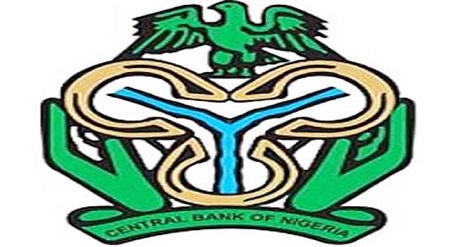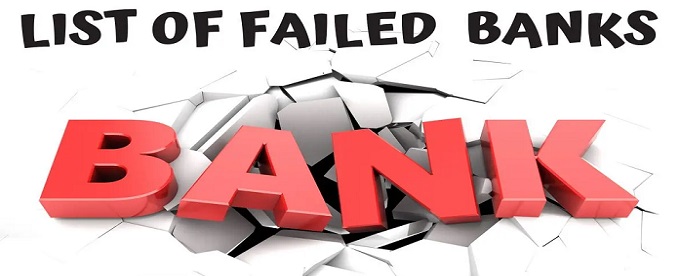E-Financial
Dissecting CBN’s Cashless Programme In A Cash-Oriented Society

In 2012, when the Central Bank of Nigeria [CBN] introduced the cashless policy, the crux of the objectives was to encourage more electronic-based transactions for payments of goods, services, and transfers, etc.
Between 2012 and now, come one say if the policy has achieved these objectives? Has the CBN encouraged more electronic-based transactions for payments of goods, services and transfer? Is there an answer in the CBN’s e-collection platform, a solution that allows electronic collection of government fees, taxes and custom duties, which equally let government agencies exploit the full capabilities of the technology to transform its services to the public?
The digitization of collection process may have served the CBN as a means to achieve its cardinal objective, which is to engender a cashless environment.
According to Director, Banking and Payments System of the CBN, Dipo Fatokun in a report, the cashless policy drive development and modernization of CBN’s payment system in line with Nigeria’s vision 2020 goal of being amongst the top 20 economies by the year 2020.
The cashless policy, he concurred, is designed to reduce, “not eliminate the amount of physical cash” circulating in the economy, while encouraging more electronic-based transactions.
The CBN director agreed that the cashless policy has reduced the cost of banking services including cost of credit and drives financial inclusion by providing efficient transaction options and greater reach, and improves the effectiveness of monetary policy in managing inflation and driving economic growth.
However, has this policy driven financial inclusion, reduce high security and safety risks, facilitate the growth of e-commerce, foster transparency and curb corruption/leakages?
To answer these questions, let us dissect how the policy has affected banking, corporations, government and the banking public.
For the banks, again let us turn to Fatokun, the policy has enhanced profit and income line, reduced risk of cash related attacks, reconciliation and tracking of transactions and payments.
It has opened efficient and effective means of processing transactions on e-channels thereby reducing cost of operations such as cash handling and other associated cost of dealing with cash transactions.
For corporations, research shows that the policy has given the corporations faster access to needed capital, reduced revenue leakage and reduced cash handling cost.
With the myriads of e-channels installed, a corporation can easily make bulk payment across multiple banks in real time.
Added to that, accounts reconciliation, which is described as a “monster” by MD/CEO, PFS the company behind the cheque truncation regime, Yele Okeremi, is now being nip in the bud.
For bank consumers, the CBN cashless policy has increased convenience, cheaper access to (out-of-branch) banking services and access to credit.
This is debatable: my company approached a bank for an overdraft. The bank asked for collateral that is above the overdraft.
In short, the bank did not grant the over draft because our company did not produce the collateral. Case closed.
The policy, according to the CBN, has reduced over-all cost of handling cash and risk of cash related crimes.
This is accurate: Most bank customers have now adjusted to making payments using e-channels such as card, PoS, online and mobile banking as well as ATM for cash withdrawal.
Besides, bulk payment across multiple bank accounts is now possible. With a mobile app installed on my smart phone, I regularly make payments to friends and siblings without visiting the banking hall. Making payment with the PoS is catching on but it can be better.
Paying for good on e-commerce sites in Nigeria is now trending. Booking hotel room, buying air ticket is now a fad.
For government, the policy has brought firmer grip on monetary policy and its attendant effects on inflation and economic stability, greater financial inclusion, increased economic development and transparent tax collection.
It has also increased internally generated revenue [IGR]. The success stories of increased IGR by some state governments such as Lagos would include the introduction of the Lagos State Government Electronic Banking system of Revenue Cycle Management (LASG EBS-RCM) with the Direct Bank Lodgment System (DBLS) of the revenue collection process in 2002.
IGR has grown annually at an average of 6%.
After the pilot of the cashless policy in 2012, IGR grew by 10%.
In Ogun State, which introduced a cashless pilot scheme in 11 state-owned tertiary institutions in response to revenue leakages, witnessed increase in revenues in 2012 to the tune of N2.5billion, which is 195% increase from reported revenues in first quarter of 2011 without an increase in fees.
However, to plug loopholes in the Federal Government revenue collection system and enthrone a new regime of transparent and accountable IGR management, the Office of Accountant General of the Federation [OAGF] has created Government Integrated Financial Management Information System [GIFMIS] in association with Remita, the asset of SystemSpecs, which is the CBN payment gateway.
This is done in collaboration with Deposit Money Banks (DMBs) and other electronic collection channels like cards, PoS, ATMs, mobile wallets.
This, too, is in line with the CBN e-payment policy.
With GIFMIS, all government payments are now routed to the CBN Payment Gateway for onward payment into beneficiary’s accounts.
This indicates that all 700 ministries, directorates and agencies [MDAs] are involved directly in this set up. Meanwhile, the Payment Gateway, hosted by Remita, is connected with the CBN T24 banking application and GIFMIS solution for an end-to-end automation of payment and collection processes of federal government.
The CBN policy has enthroned a new regime of transparency in the allocation of funds, as the budgets of all 700 MDAs is handed over to individual management, separate from that of the supervising ministry.
As it stands MDAs cannot spend beyond the approved budget. If you understand what operates in the MDAs environment, cash is king.
The CBN has successfully eliminated cash and enthroned e-collection and e-payment. Through this process, the government has already saved over N500 billion. One wonders who were the beneficiaries of this N500 billion?
Anyway, the journey is still far, the road tortuous. From the above, could one clearly say that the CBN has created a cashless environment in a cash-minded Nigeria?
Has the CBN encouraged more electronic-based transactions for payments of goods, services and funds transfer in Nigeria?
Rarzack Olaegbe works with eMaginations, with baise for electronic payments, based in Lagos
E-Financial
Sterling Bank Pledges ₦2bn to Fully Fund University Scholarships

Sterling Bank has launched a ₦2 billion scholarship initiative to support Nigerian students in private universities. The program, Beyond Education, was unveiled on Democracy Day and aims to remove financial barriers to higher learning.

The bank will fully sponsor 600 students from across Nigeria’s 36 states and the FCT to study Technology, Finance, Sales, and Public Health at Miva University, founded by Sim Shagaya. The selection process is merit-based, with candidates nominated by themselves or others, and final selection determined through public voting open to Sterling account holders.
Sterling Bank’s CEO, Abubakar Suleiman, described the initiative as an investment in Nigeria’s future, aligning with the bank’s commitment to Health, Education, Agriculture, Renewable Energy, and Transportation. The bank has already deployed over half a trillion naira in financing across these sectors.
According to Obinna Ukachukwu, Growth Executive at Sterling Bank, the program is about creating opportunities beyond education. The bank is shifting from short-term philanthropy to long-term ecosystem development, with investments in digitized healthcare, school financing, agricultural cooperatives, solar energy, and transport systems.
“Nigeria’s progress requires action,” Suleiman said. “We are funding the future architects of the country—those who will build the businesses, institutions, and innovations needed for national prosperity.”
Nominations for the Beyond Education scholarships are now open at www.sterling.ng/FUTURE. The initiative sets a precedent for private-sector-driven education investment, where success is measured not just in profit, but in people empowered.
E-Financial
FG to Train 100,000 Youths Annually in Forex Trading and Financial Skills

Federal Government of Nigeria has signed a Memorandum of Understanding (MoU) with Investonaire Academy to train 100,000 young Nigerians annually in forex trading, financial planning, and risk management.

The agreement, signed in Abuja, was announced by Omolara Esan, Director of Information and Public Relations at the Federal Ministry of Youth Development. According to her, the initiative is part of the government’s broader strategy to reduce youth unemployment and enhance financial inclusion.
At the signing ceremony, Minister of Youth Development, Comrade Ayodele Olawande, described the partnership as a milestone in the ministry’s efforts to equip young Nigerians with practical financial skills. He emphasized that the programme would foster critical thinking, improve digital literacy, and expand access to global economic opportunities.
Speaking on the collaboration, Dr. Enefola Odiba, International Programme Director at Investonaire Academy, highlighted the importance of empowering youth with relevant financial and digital skills. He described young people as essential drivers of innovation and national development.
The ministry assured that the programme would be implemented with transparency and measurable outcomes, ensuring that participants gain practical expertise in forex trading and financial planning.
The Federal Government has recently intensified efforts to boost skill development across various sectors. A separate plan aims to train 100,000 artisans nationwide, following the successful upskilling of 29,000 individuals in previous phases. This initiative seeks to professionalize vocational trades, eliminate quackery, and introduce licensing systems.
Additionally, technicians from specialized institutions will receive industry-standard training to strengthen Nigeria’s labor force and increase self-reliance in skilled professions.
Through these efforts, the government hopes to position Nigerian youth for economic success both locally and globally.
E-Financial
NDIC Begins Final Settlements to Creditors of Liquidated Premier Bank

Nigeria Deposit Insurance Corporation (NDIC) has begun the final phase of liquidation for the defunct Premier Commercial Bank, initiating the payment of liquidation dividends to verified creditors, nearly 25 years after the bank’s closure.

Premier Commercial Bank had its operating license revoked by the Central Bank of Nigeria (CBN) on December 20, 2000, following findings of financial instability and regulatory non-compliance.
Since then, the NDIC has overseen the bank’s liquidation process under a winding-up order from the Federal High Court, which designated the corporation as the official liquidator.
In a public announcement, the NDIC invited all eligible creditors to visit any of its zonal offices between June 2 and June 27, 2025, to verify and claim their entitlements.
This move marks a critical milestone in the final settlement of claims related to the bank’s collapse.
To facilitate the verification process, creditors are required to present proof of deposit or shareholding, such as a passbook, chequebook, term deposit certificate, or bank statement.
Additionally, valid identification documents must be submitted, including a driver’s license, international passport, national identity card, NIN slip/card, voter’s card, or a formal identification letter from a traditional ruler or local government chairman.
The NDIC assured the public that the ongoing settlement is part of a broader effort to bring closure to longstanding claims resulting from Premier Commercial Bank’s liquidation. The process, according to the corporation, has been designed to ensure efficient disbursement to all verified stakeholders.
Premier Commercial Bank is one of 53 deposit money banks whose licenses were revoked by the CBN between 1994 and 2018 due to various violations and signs of financial distress.
These closures were followed by legal procedures appointing the NDIC to manage asset recoveries and creditor settlements.
By initiating this final phase of payment, the NDIC is reaffirming its commitment to financial system stability and depositor protection while calling on all affected individuals and institutions to complete verification processes promptly to receive their due compensation.

 General News2 days ago
General News2 days agoAfDB to Provide $184.1mfor Africa’s Largest Solar Energy, Battery Storage Project

 News2 days ago
News2 days agoReport Reveals New Malware Posing as an AI Assistant Steals User Data

 General News2 days ago
General News2 days agoCourt Declines Access Bank’s Request to Freeze MTNN Account over N180Bn Claims

 Telecom2 days ago
Telecom2 days agoMTN Mulls Establishment of Fintech Firm in Nigeria, Others

 News2 days ago
News2 days agoAliko Dangote Signs out @ Dangote Sugar Refinery as Chairman

 E-Business2 days ago
E-Business2 days agoFG Mulls Fibre Optic Layout to Bridge Internet Gaps

 E-Financial2 days ago
E-Financial2 days agoFG to Train 100,000 Youths Annually in Forex Trading and Financial Skills

 E-Financial1 day ago
E-Financial1 day agoSterling Bank Pledges ₦2bn to Fully Fund University Scholarships

























